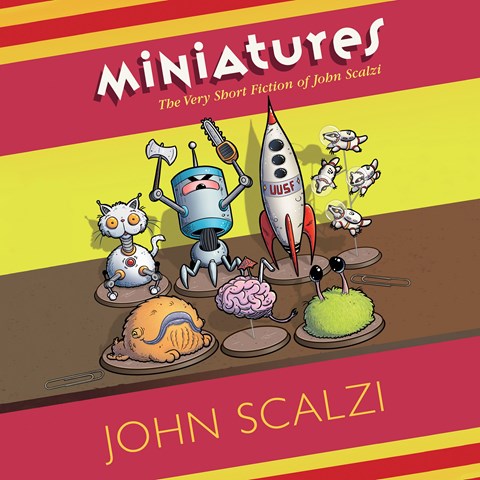

They are empowered and strong, and their disability never becomes a crutch, object of sympathy, or plot device. Scalzi’s protagonist is one the best examples I’ve ever read of a character with a disability. *Thank you to the comments below for clarifying that the main character’s gender is never specified. And he does this while telling a seat-gripping thriller that won’t put you down until the last page.

Through the lens of this fictional illness, Scalzi also shines a light on many of the big questions and debates around disabilities, identities, and disability rights that are so relevant today. The book’s protagonist is a young man adult* that is locked in, and the plot touches upon so many aspects of life with a disability: the stresses of finding accommodations, starting a new job, dealing with discrimination, living independently, and managing your own healthcare needs.

So over the course of a few years, there are millions upon millions of people that have become locked into their bodies, and the world is forced to adapt to meet the needs of this new segment of the population. In most people, the disease is akin to a bad case of the flu and they recover, but in a small percentage of the population, it causes “lock in” - a condition where the person is completely paralyzed but their mental faculties remain intact. Set in the near-future, the premise of the book is that a new disease has swept over the Earth and infected nearly everyone at one point or another. Lock In by John Scalzi is one of the first mainstream books that I’ve read that attempts to break free from both of these cliches.

They may not have use of their legs, but who needs legs when you can fly? While the first trope is tired and falls into the “ inspiration porn” trap, the second one is a cop out that cheapens the impact of having a character with a disability, as the author can easily ignore any actual limitations or challenges that disability would cause. They are a minority group that is routinely overlooked, and even if a book does include a character that has a disability, the character generally falls into one of a few cliches: either their disability is used as a source of inspiration, as the character struggles all book long to “overcome” their disability and succeed despite it, or (and this is quite common in sci-fi and fantasy) their disability is used as a source of magical power or ability. It’s incredibly rare to see characters with disabilities in mainstream fiction.


 0 kommentar(er)
0 kommentar(er)
